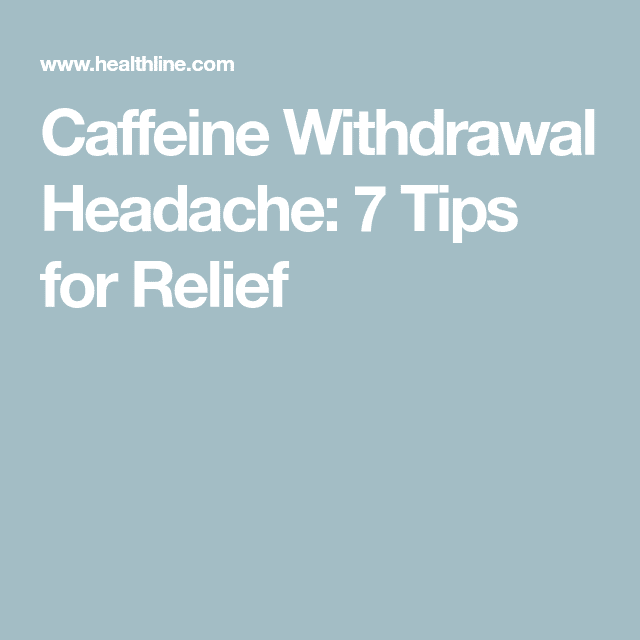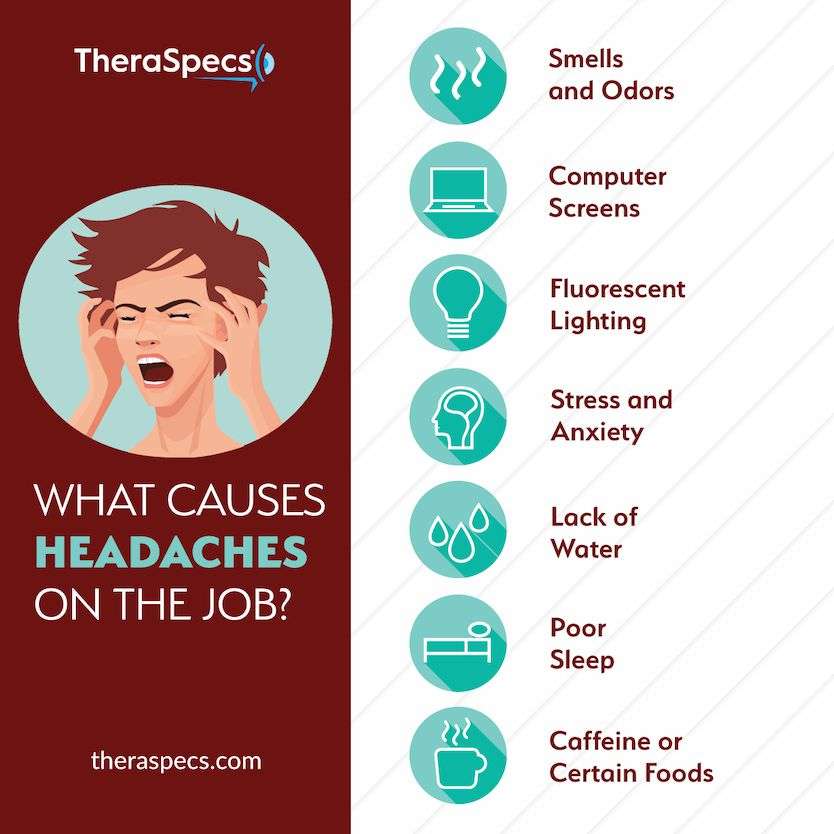Supplements To Work Into Your Regime
For some dealing with lifelong migraine disease, the incorporation of a handful of key herbal supplements many recommended by medical doctors have made a critical difference in headache reduction. The top six supplements for those with migraine are butterbur, vitamin B2, magnesium, melatonin, CoQ10, and feverfew. In addition, the inexpensive root ginger can help with migraine prevention due to its benefits for reducing inflammation and can be tried in many forms from essential oils to drinks to candies.
Slowly Back Away From The Caffeine
These tips can help you incrementally stop your caffeine intake.
- Set a time limit: Set a time by which you stop your caffeine intake each day. Medical professionals recommend 2 p.m., so as not to interfere with your sleep.
- Substitute a lower caffeine drink: Start with small changes. If you usually drink light roast coffee, switch to a dark roast, to start. If you usually drink black tea, try green or white tea instead.
- Lean on decaf: If you typically drink espresso or dark-roast coffees, which have more caffeine than other caffeinated drinks, start by cutting it with half or even a quarter decaf coffee. Then, every few days, cut it down further, slowly reducing your intake over time.
And dont rush it. Slowing ramping down is the best way to go about it, Czerwony advises.
What Is A Caffeine Headache
Headaches are caused by changes in blood flow to your brain, says Patel. And caffeine can, you guessed it, impact your blood flow. Caffeine is a stimulant, which kicks your body into high gear by triggering the fight-or-flight response , says Egler. And when you’re in fight-or-flight mode, your blood vessels constrict, which pushes blood out to the body to prepare it for action, he explains. As the caffeine wears off, however, your body starts to relax again. And that relaxation opens up your blood vessels, sending sudden blood flow to an unsuspecting and unprepared brain, according to Egler. The result? Pain while your system tries to re-adjust to the absence of caffeine.
Read Also: How To Brew Folgers Coffee
Avoid Caffeine In The Evening
Caffeine can stay in your system for six hours or more, so if you’re having trouble sleeping, avoid caffeine in the evening.
Caffeine can cause trouble sleeping, which can lead to headaches. If you’re having trouble sleeping, try avoiding caffeine after lunchtime.
This means that consuming caffeine in the evening can still affect you when you go to bed, making it difficult to fall asleep.
How Long Does Caffeine Withdrawal Last It Can Vary A Lot

Whether youâre cutting down on coffee because youâre experiencing side effects like the jitters, or giving up energy drinks in a bid to improve your sleep, caffeine withdrawal is something to look out for.
Headaches, fatigue, and brain fog are all common symptoms, but how long they last and how bad they are will be different for everyone. Even more surprising? You donât need to cut out caffeine altogether to feel these withdrawal symptoms. Even skipping just one coffee a day can cause them.
Below, weâll cover what exactly caffeine withdrawal feels like and how long the symptoms can last. Plus, weâll cover the best ways to get over caffeine withdrawal and whether you really need to give up caffeine to begin with.
You May Like: Is Coffee Acidic Or Alkaline
Drink Water And Stay Hydrated
If you feel a withdrawal headache coming on, immediately grab a cup of water. According to Medical News Today, when the body is dehydrated, it causes the brain to shrink in size and triggers pain receptors in the skull. Dehydration can also heighten other withdrawal symptoms, including fatigue and inability to concentrate . It’s important to keep the body hydrated, as water can act as fuel and helps to maintain the body’s energy level, per NBC News.
Dark Room And Relaxation Time
If youre experiencing caffeine-induced headaches, try dimming your lights and taking some time to relax to help alleviate the pain. If youre experiencing a caffeine headache, you may want to avoid bright lights and loud noises to help soothe the pain.
If this is the case, try to get to a quiet and dimly lit room, relax for a few minutes, and see if the pain goes away. This may allow you to wait out the caffeine headache and avoid taking painkillers or other medications.
To relieve headache pain, try these:
- Place a cold compress on your forehead or temples.
- Drink lots of fluids, especially water. Dehydration can make headaches worse.
- Massage your neck and shoulders to relax tension.
- Try over-the-counter pain relievers, such as ibuprofen or acetaminophen .
- If you’re a woman, ask your doctor if you can take estrogen. Hormone changes during the menstrual cycle can trigger headaches.
Recommended Reading: Which Instant Coffee Has The Most Caffeine
The 7 Methods I Use To Get Rid Of A Caffeine Headache
As an Amazon Associate I earn from qualifying purchases.
Weve all been there, we didnt get our morning cup of coffee and you feel a dull ache starting to develop. If youre a caffeine lover your dull ache might develop into a raging headache within the next couple of hours unless you can find some liquid caffeinated relief.
While the exact reasons that caffeine and caffeine withdrawal can cause headaches are not well understood, there are several things you can do to get rid of a caffeine headache and prevent them in the future.
With that being said, If you want to get rid of caffeine headaches permanently, detox from caffeine. It may feel like you have your head in a vice for a few days but the end result may be worth it to you: no more caffeine aches in your head, increased energy, improved gut health, etc. If thats appealing, check out our Caffeine Detox Guide.
Reduce Caffeine Consumption Slowly
Going cold turkey can make symptoms more severe. Instead, try weaning yourself off by slowly cutting down the amount of caffeine you have each day over the course of several weeks. According to the American Migraine Foundation, you should reduce caffeine intake by 25% each week to avoid withdrawal symptoms.
You could have one shot of coffee in your latte instead of two, or switch one cup for a drink with less caffeine content, like green tea. Plus, if you find yourself craving the taste of coffee, try switching a cup or two to decaf.
However, you should seek medical advice if youâre worried about how cutting down on caffeine could affect you.
Also Check: How Much Caffeine Does Decaf Coffee Have
Your Brain On Caffeine:
So if youre jonesing for your caffeine fix, can having a cup of coffee or tea make a headache, especially one caused by caffeine withdrawal, feel better? Yes, sometimes. In fact, some over-the-counter headache medicines even contain caffeine. A little caffeine and, say, an ant-inflammatory like ibuprofen, can helpthe caffeine enhances the effect, says Dr. Martin.
But heres where it gets tricky: Caffeine can also trigger a headache or a migraine.
Thats because the narrowing of blood vessels isnt the only thing caffeine does to the brain, says Dr. Martin. Caffeine affects energy metabolism in the brain, by blocking the cells from taking up the glucose it uses for fuel. Thats why if you swig an XL Dunkin’ for breakfast without eating anything, youre liable to feel shaky and nervous and possibly headachyyour brain isnt getting the energy it needs to function properly. A lot of people just drink coffee for breakfast, which is the exact opposite of what you want to do, says Dr. Martin.
All that to say, if caffeine withdrawal is not your problem, caffeine may make it worse.
Try Other Adrenal Support Supplements
If youre constantly stressed, there is a good possibility that youve been overtaxing your adrenal glands. This is especially true if youve been using caffeine which puts your body into a heightened state of stress as long as caffeine is in your body.
Any sort of chronic stress, caffeine-induced or not, can lead to adrenal imbalances or, as many people call it, adrenal fatigue. If this is the case for you, your headaches may arise in direct relation to caffeine use or stressful situations. While detoxing from caffeine is really the only effective way to allow your adrenal glands to recover, you can band-aid the situation short term by supplementing with either DLPA or Tyrosine, the building blocks for most of what they do.
Read Also: How To Decalcify Coffee Machine
Coping & Relief From Caffeine Withdrawal
Numerous studies have shown that the easiest and most effective way to overcome caffeine withdrawal symptoms is by taking more caffeine. The key is to be careful with how much.
Check out the amount of caffeine in common foods and drinks and make sure you don’t increase your caffeine intake beyond the amount you were consuming before, as this will build up your tolerance, potentially feeding your caffeine dependence.
Where Is A Caffeine Withdrawal Headache Located

A caffeine withdrawal headache can present as a feeling of pain and pressure that pushes outwards from the brain. Starting behind the eyes, it can move up to the front of the head. Caffeine withdrawal headaches can also present with migraine-like symptoms and as a widespread feeling of throbbing pain.
Don’t Miss: Which Coffee Is Stronger Light Or Dark Roast
Drink Plenty Of Water And Rest Up
This is another common-sense suggestion. Because caffeine is a diuretic that makes you urinate more frequently, it can result in you losing fluids and getting dehydrated quicker.
This, in turn, can trigger pain receptors in your head and cause headaches. Thats why its always a good idea to stay hydrated and drink at least 8 glasses of water a day.
Pair this with plenty of rest. The last thing you need or want to be doing while experiencing a caffeine headache is staring at a laptop screen and trying to study or work. Take a break, lie down and catch some sleep. This along with the water will help your body recover quicker.
Is Caffeine Addictive
Caffeine isnât considered addictive, but you can develop a tolerance for it. That is, your body gets used to it and you need more of it to feel the same stimulating effects. Plus, you begin to struggle without it, creating caffeine dependence.
Caffeine withdrawal is also a very real thing. Itâs now recognized as a medical disorder in the Diagnostic and Statistical Manual of Mental Disorders â a handbook used by healthcare professionals to diagnose disorders.
Caffeine also easily disrupts your sleep. If you consume too much too close to bedtime, youâll find yourself wide awake in bed, unable to get the sleep you need each night. This leads to more tiredness the next day, meaning youâre much more likely to reach for an extra cup of coffee, continuing the vicious cycle. This is why many of us decide to cut out caffeine altogether.
Also Check: How To Make Personalized Coffee Mugs
What You Can Do
Be aware of how caffeine affects you, and pay attention to how much of it you drink and eat. If you get migraines, or if you find yourself having headaches frequently, you may want to try to cut down on caffeine or avoid it completely. Itâs best to do that gradually. For example, if you normally have 2 cups of coffee in the morning, start by cutting back to one. If you quit suddenly, it can take up to a week to get past the withdrawal symptoms.
Keep track of your headaches and what seems to help. Get good sleep, and drink plenty of water. A nutritious diet and daily exercise can also help. Try to manage stress. You might be able to beat a headache with relaxation techniques, meditation, or massage instead of using medicine or caffeine.
Show Sources
How To Remedy A Caffeine Headache
The number one cause of a caffeine headache is caffeine withdrawal.
Even a small decline in the amount of caffeine a person usually consumes can result in a mild headache.
People who miss their daily dose, consume less than their average, or who are detoxing from caffeine will most likely experience this type of headache.
Need help reducing caffeine ?
As many have experienced, you dont need to be an addict to experience the negative effects of caffeine
People who consume caffeine in a hit or miss fashion tend to have more caffeine-induced headaches than those that have the same amount every day.
Also, those that consume too much caffeine in a short amount of time often experience a headache as a common caffeine overdose symptom.
Finally, those who are ultra-sensitive to the caffeine molecule or who have an allergic-like reaction to the substance, can also experience a headache. However, this type of caffeine headache the least common.
If you arent intentionally quitting caffeine, the best remedy for a caffeine withdrawal headache is to consume more caffeine.
Pain relievers such as Excedrin also include caffeine and can remedy the caffeine withdrawal headache faster since they contain added pain relievers.
Don’t Miss: How Much Caffeine Can You Have When Pregnant
Ever Get Hit With A Headache On A Saturday Skipping Your Daily Coffee Can Cause Caffeine Withdrawal Headaches Discover Why It Happens And How To Avoid It
When I worked 12-hour night shifts as a transplant nurse, I relied on a caffeine fix to relieve my tension headaches and give me an extra pick me up. My headaches came roaring back on my off days, though, thanks to caffeine withdrawal.
Are you one of the 80% of Americans who grabs a coffee cup shortly after waking up? Do you ever get headaches and use caffeine to relieve your pain? If so, keep reading to learn how to stay out of the danger zone of caffeine headaches.
How Much Caffeine You Should Consume To Relieve Headaches
Overall, Stephens says it’s important to consume caffeine in moderation. That way, you can stave off any potential episodes of withdrawal.
“The right amount is under 400 mg of caffeine per day,” says Stephens. That’s around two to four cups of coffee, depending on how long it’s brewed for, as well as how strong the coffee you’re drinking is.
Also Check: What Is Nitro Brew Coffee
What Causes Migraine Attacks
People living with migraine typically deal with recurrent, pulsating headaches that can be severe.
These headaches can last anywhere from a few hours to almost 3 days and sometimes include symptoms like sensitivity to light and sound, nausea, and vomiting.
While researchers are still trying to get to the bottom of why migraine attacks happen, they can be caused by a variety of known triggers, including:
Medications used to treat migraine also sometimes cause more attacks if theyre used more than 10 days out of the month.
Caffeine Can Also Trigger Headaches

Drinking lots of caffeine won’t help relieve a headache. For example, if you increase your caffeine intake, but don’t increase how much water you’re drinking, caffeine can trigger a headache indirectly by causing you to become more dehydrated.
However, you’re more likely to get a headache from caffeine if you simply drink too much of it too often, because this can lead to dependence.
If you suddenly stop or reduce your caffeine intake after consuming it regularly typically more than 200 mg per day for more than 2 weeks you may feel the symptoms of caffeine withdrawal. According to the Diagnostics and Statistical Manual of Mental Disorders , headaches are the main symptom of caffeine withdrawal.
Caffeine narrows the blood vessels around your brain, so once you stop consuming it regularly, they expand. This causes a significant increase in blood flow to the brain, and that’s what can lead to migraine headaches.
“If you want to get off caffeine, don’t abruptly stop. Taper your intake gradually over a few days. This can help minimize the intense withdrawal headache,” says Stephens.
According to the American Migraine Foundation, it’s possible to avoid caffeine withdrawal symptoms by tapering down your intake to as little as 25 mg of caffeine a day.
You May Like: Where To Buy Specialty Coffee Beans
How Exactly Does Caffeine Improve Headache Treatments
Blood vessels tend to dilate before a headache. Caffeine has vasoconstrictive properties, meaning it narrows blood vessels, restricting blood flow. Since caffeine prevents the dilation of blood vessels, it tends to prevent headaches. There are likely many more ways that caffeine works to reduce headache pain that arent fully understood.
Many OTC headache treatments, such as Excedrin, and some prescription headache medications actually contain caffeine, according to Cleveland Clinic. Because of this, some people might find that a simple cup of coffee relieves their headaches. If youre not a fan of coffee but you want to use caffeine to soothe your headache, consider trying green or black tea both contain caffeine.
However, you should be careful when treating a headache with caffeine, as you can overdose and there are some potential side effects.
On the other hand, caffeine can cause headaches.
Caffeine can make you urinate more, potentially dehydrating you. In turn, dehydration can cause headaches.
Headaches can also be caused by a caffeine overdose. According to Mayo Clinic, overdosing on caffeine can cause headaches as well as a range of other side effects. Daily maximum should be 400 milligrams of caffeine, although some people might only be able to tolerate less. This is the equivalent of about four cups of brewed coffee a day. This can vary depending on the strength of the coffee.
- some soft drinks